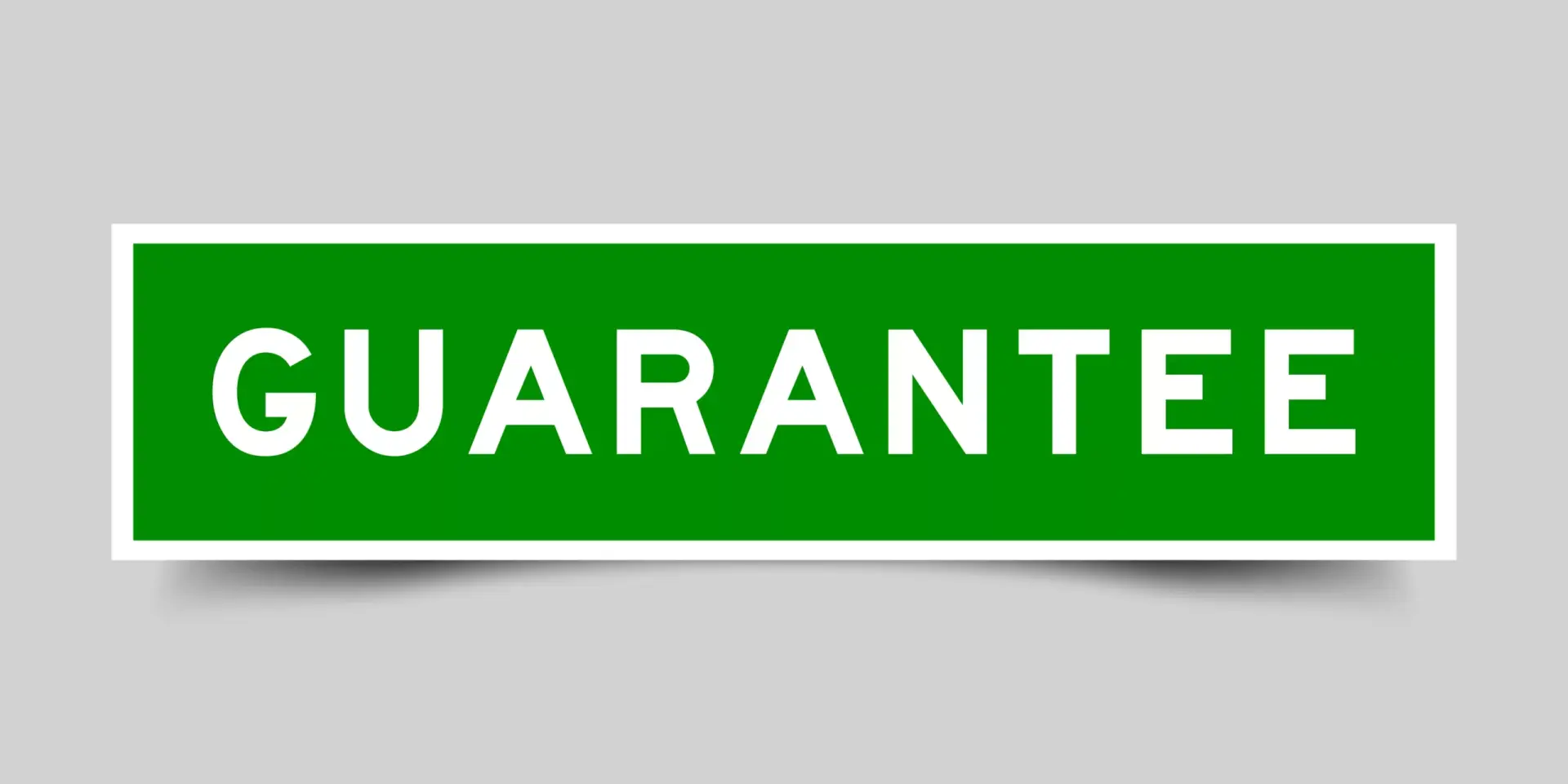A Payment and performance bond are two of the most important financial tools in the construction industry. They play an essential role for project owners, contractors, subcontractors and other involved parties by guaranteeing payment as well as successful completion of a project. To understand how these types of payment bond work exactly it’s crucial to know their purpose, costs related to them along with knowing which bonding company best suits your needs during each step from start up till finish! This blog post will provide you all this insight so that when faced with using either type or both at once – payment and performance – you’ll be able to make informed decisions regarding these money-guaranteeing bonds like a pro.
Key Takeaways
- Payment and Performance Bonds guarantee payments to contractors, subcontractors, suppliers and laborers on public projects.
- Bonding process involves application/underwriting approval & issuance of bonds with costs determined by contract value, financial strength & credit score.
- Select a bonding company that offers experience/knowledge as well as excellent customer service & responsiveness for successful bond process.
Understanding Payment and Performance Bonds

For construction projects, payment and performance bonds have a significant purpose by ensuring contractors honor their obligations to pay subcontractors, material suppliers and laborers. This safety measure is accomplished through surety and payment bonds work which are provided by surety companies.
The function of the payment bond is to protect these private projects and individuals from nonpayment while the use of the performance bond safeguards contractors who commit themselves to fulfilling certain contractual responsibilities at an agreed upon cost within given period.
Payment Bonds: Definition and Purpose
Payment bonds are a must-have in the construction industry, acting as an assurance that subcontractors and material suppliers will be paid according to contract terms. Especially when it comes to public projects, payment bonds provide security against financial risk – safeguarding those involved in government projects from not receiving what they’re due for their work or materials provided. Construction payment bonds give contractors more leverage by drawing on different subcontractors & suppliers while also protecting them with this guarantee of full reimbursement.
Performance Bonds: Definition and Purpose
Performance bonds are a form of protection for project owners, which guarantees that contractors will carry out their contractual commitments. Should the contractor be unable to meet these demands, the surety of contract bond will come in and either provide compensation or find an alternative solution so as not to exceed the bond amount limit set by it.
By taking on this commitment of issuing performance bonds state projects, a contracting company is sending out a signal demonstrating its dedication towards meeting obligations, giving assurance for job completion according to criteria determined beforehand with respective project owners.
The Bonding Process

The bonding process is when contractors obtain payment and performance bonds after they have acquired a bid bond which ensures that if their proposal wins, the contract conditions will be met. This procedure involves getting approval from a surety company by applying for the bond and then completing an underwriting assessment against other bonds. We will discuss On what affects premiums of these bonds such as application procedures, issues with surety firms along with issuance fees involved in this process.
Application and Underwriting
When applying for a bond, the applicant must provide basic information about themselves, required documents and fill out an application form with details regarding type of bond and amount. In some instances, financial statements along with contractor questionnaire as well as references from key people might also be requested by underwriters in order to evaluate personal character, economic status situation analysis history prior to providing permission on any bonds issued. They may require resumes related to important personnel when assessing whether or not they will accept a request for coverage.
Approval and Issuance
The surety company makes sure the contractor has a solid financial standing and reliable background, which are reflected in the bid bond. Once that’s evaluated positively, payment and performance bonds are issued for confirmation of fulfilment of all legal obligations by the contractor on this project. This gives assurance to the government agency and project owner about full payments made to subcontractors, suppliers or laborers involved with its completion without delays. They guarantee proper execution according to what is outlined in these documents so neither party will be wrongfully affected if something goes awry down their line.
Costs and Factors Affecting Bond Premiums

The cost of bonds is dependent on numerous variables such as the contractor’s credit score, experience and financial standing, contract value etc. Performance and payment bond costs are Estimated at 0.5-3% of the total contract worth which contributes to determining what kind small percentage of amount has to be given for a payment bond price tag. Besides this particular factor certain state rules play an important part in deciding how much a bond will incur like by applying minimum limit criteria etc..
We shall cover up Topics regarding figuring out the expenses related with obtaining bonds when contractors have low or bad credit during process procurement leading them into different bonds vs other sorts difficulties that may occur meanwhile trying securing one .
Determining Bond Cost
When it comes to the cost of a bond, various elements need to be taken into account. These include contract amount, financial status and credit rating of the contractor along with any relevant experience and state regulations that might apply. A contractor who is able to present strong evidence in terms of both their finances and credit score will usually have access to better rates on their bonds than those with lower ratings or weaker backgrounds. Contractors should Consider all these factors carefully during the bonding process as this may help them get more competitive prices for surety bonds down the line. This understanding could also lead contractors towards making well-informed decisions about bond costs before finalizing an agreement between themselves and potential clients concerning said guarantee protection too!
Bad Credit and Bond Accessibility
Contractors with bad credit may face obstacles in securing surety bonds due to their poor credit record. Programs exist that allow those who have experienced minor issues with their rating the opportunity to obtain a bond. When applying for such bonds, applicants must provide comprehensive information of past financial history as well as any possible factors which lead up to it and supplemental data like bank statements or tax returns. Although there might be higher premiums required when trying to attain these types of surety bonds while having bad credit and an increased level of examination from the bond issuer, contractors are still able achieve them if needed for projects they want complete professionally.
Claims and Dispute Resolution

When claims and dispute resolutions are filed against a construction payment bond or performance bond, the surety company is responsible for examining them in order to decide whether compensation should be given. This applies if subcontractors, suppliers or laborers have not been paid according to agreement made from the payment bond. It also covers failed contractual obligations under any Performance Bonds issued out by project owners. Knowing how these processes work can assist both contractors and those overseeing projects with tackling issues related to their bonds as effectively as possible. The surety will look over each claim submitted and validate its authenticity before providing an outcome.
Filing a Claim Against a Payment Bond
In order to file a claim against a payment bond, the claimant must be aware of federal and state regulations which govern this process. A good starting point is getting in touch with either the project owner or bonding company in order to obtain a copy of said payment bond claims. After sending out preliminary notice it will then be necessary to submit written claims as well any supporting documents towards the bonding firm for formal processing of such payment bonds claims.
Filing a Claim Against a Performance Bond
The surety must look over the evidence supplied by the claimant for any performance bond related claims, including invoices and contracts. If necessary, they may provide compensation or finish up work on a project to settle it. Filing such a claim requires verification before anything is done regarding reimbursement or completing unfinished jobs.
Bond Requirements in Construction Projects

When it comes to bond requirements for construction projects, bid bonds and license bonds are typically necessary. Bid bonds ensure that the general contractor who will accept the job should their bid be successful. Whereas a license bond serves as an assurance of compliance with contractual conditions. In this article we’ll take an in-depth look at how each type of bonding contributes to different aspects within these types of projects.
Bid Bonds
Bid bonds provide project owners with the assurance that contractors will submit accurate and competitive bids, protecting them from possible losses due to unreliable pricing. Securing a bid bond is an indication of the contractor’s promise to present a performance bond in case they win the contract. This ensures their commitment into keeping up with contractual arrangements as well as providing fairness within bidding procedures for everyone involved in construction contract.
The process of construction also involves payment bonds which make sure subcontractors and suppliers get paid in a timely manner while working on particular projects or contracts separate bonds concerning payments related operations such as security deposits – all backed by this type of bond between parties granting peace-of-mind about legalities tied down each party concerned priorly agreed upon!
License Bonds
License bonds provide assurance to project owners of contractors’ commitment to legally and ethically operate. They are typically needed for projects, bids, and construction contracts in many jurisdictions. Securing such a bond communicates that the contractor is dedicated to following all applicable rules which instills trustworthiness in them from the people hiring them. Bonds act as guarantees so contractors can demonstrate their promise of keeping regulations up-to-date when participating on any given job or bid. It gives peace of mind throughout this process too.
Tips for Choosing a Bonding Company

To ensure a successful bonding process, contractors should carefully consider the experience, knowledge and customer service of potential bonding companies. Doing so will ensure that they are equipped with an experienced partner to help navigate through payment bonds and performance guarantees as well as provide helpful guidance during claims procedures or conflict resolution processes. Having strong backing from a dependable bond provider is crucial for those in need of assistance getting their projects off the ground safely and securely.
Experience and Knowledge
Contractors looking to save money and time can benefit from having knowledge of their industry as well as experience when applying for contract bonds. A bonding company with expertise in the field, knowledgeable on relevant laws and regulations, could aid contractors in making sound decisions regarding bonds which would result in avoiding pricey mistakes and thus saving them both time and finances.
Customer Service and Responsiveness
For a successful bonding process, contractors require the best customer service and need to be supported without any delays. It is critical to find a bonding company who are willing and able to provide fast answers for questions posed by customers during this procedure in order ensuring that everything runs smoothly from start-to finish. Promptness of response coupled with well-rounded guidance will create an optimal experience throughout the whole transaction.
Summary
Payment and performance bonds are essential in the construction industry, as they guarantee that contractual obligations will be met. It is critical for contractors and project owners to understand the details of the bonding process – costs, claims, dispute resolution, along with bid and license bond importance prior to making any decisions involving performance and payment bonds or performance bonds. When selecting a suitable bonding company it should have experience in this field as well as demonstrating expertise on customer service levels when needed. Responsiveness must also not go overlooked either.
Frequently Asked Questions
What is the purpose of a payment bond?
A payment bond, also known as a surety bond, is essentially an assurance from the issuer that all those associated with a project will be paid. Contractors must acquire this type of guarantee and pay its related premium in order to fulfill the stated bonding requirement. Subcontractors can then rely on these payment bonds ensure for their peace-of-mind when it comes to receiving payment during or after completion of any given task within the confines of said job site/project. The issuing surety serves as protection against potential nonpayment issues so that everyone involved feels secure knowing they are going to get what’s owed them at some point down line.
What is the difference between a bid bond payment bond and a performance bond?
Bonds are important for a contractor when bidding on projects. A bid bond guarantees they can fulfill the project, while the performance bond assures that contractual obligations will be fulfilled once accepted. Payment bonds safeguard payments made to subcontractors and suppliers related to the job. All of these services contribute towards meeting necessary goals in terms of bonding arrangements throughout any given project’s course of completion.
What are the 2 types of performance bond?
Performance bonds are used in two forms: “On Demand” and “Conditional”. In many international contracts, On Demand Bonds tend to be a mandatory bond requirement particularly within the UK’s petroleum and power industries. As for Conditional Bonds, they are more prevalently applied by companies involved in the construction sector of Great Britain. Regardless of which form these bonds take on, performance is still paramount as it remains at their core purpose.
What happens when a payment bond is called?
When a third contractor fails or defaults on their part of the project, the developer can demand that they pay an amount up to what is specified in the bond – called calling it – as compensation for not fulfilling their obligations.
What factors affect bond premiums?
There are several factors that influence the cost of a bond premium. These include the total contract amount, the credit rating and financial status of the contractor, the contractor’s experience and reputation in the industry, and state regulations that might apply. The bond premium is typically a small percentage of the total contract worth, with rates generally ranging from 0.5% to 3%. Contractors with a strong credit rating and solid financial standing are more likely to be offered better rates. However, those with a poor credit rating or financial status may face higher premiums. It’s also important to note that state regulations can also influence the cost of the bond premium. For instance, certain states may have minimum limit criteria that can affect the bond cost.


